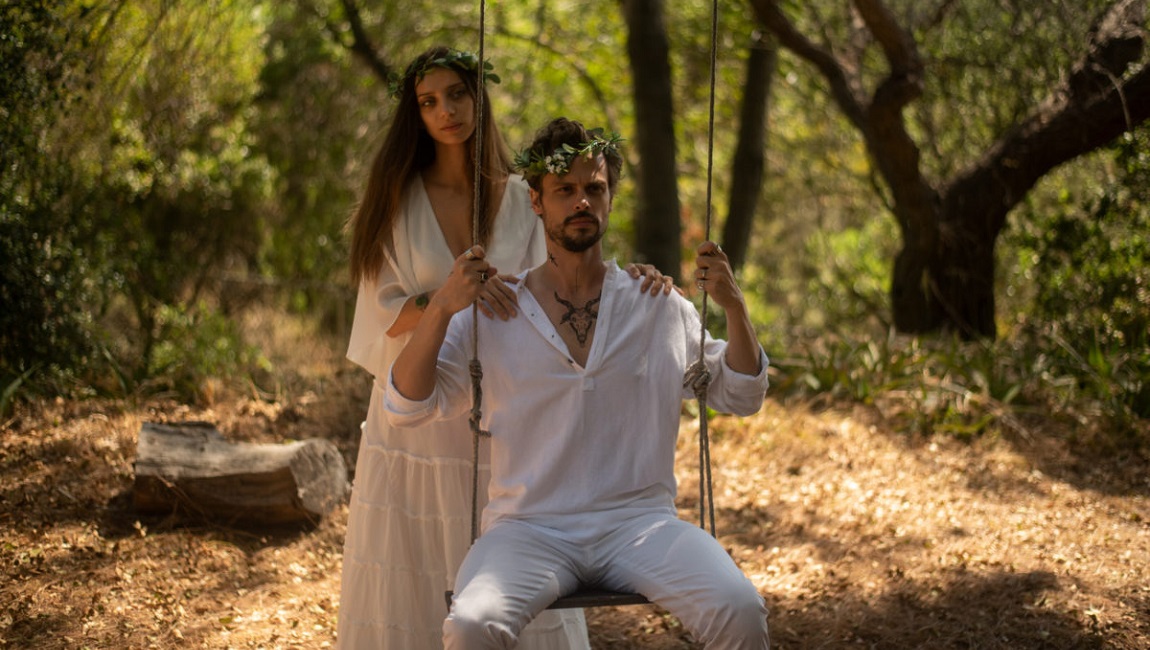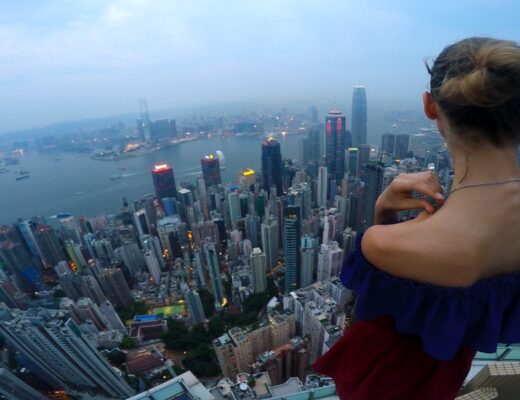A breathless, even primal, survival thriller, Haider Rashid’s Europa works like gangbusters as a propulsive bit of genre filmmaking, but less so as the empathetic portrait of asylum seekers it tries to shoehorn in as a framing device. Beginning with title cards imparting information as to the plight of illegal immigrants at the Turkey-Bulgaria border, the narrative proper opens in the dead of night with a group of people being led by a coyote, who then begins extorting more money from his desperate charges. It’s a volatile situation, and things get worse as the group is immediately detected at a border crossing by government agents and state-sanctioned militias. Chaos ensues, and one young man escapes into the neighboring forest. We will eventually learn that his name is Kamal, and that he has made a long, treacherous journey seeking new life in this unwelcoming country, but otherwise there is virtually no backstory or traditional character development present. Instead, Europa operates as a visceral chase picture, a distaff The Most Dangerous Game, as Kamal flees armed pursuers and tries making his way through dense, foreboding forest.
Rashid and cinematographer Jacopo Maria Caramella conjure a propulsive aesthetic somewhere between the Dardenne brothers and Peter Hyam’s recent work on Alone and his Black Summer streaming series. The camera hovers on and around Kamal’s face, catching bits of landscape and the surrounding topography in the periphery of the frame. Occasionally the camera pulls back far enough to situate Kamal in the middle of the image, as he attempts to get the lay of the land or ponders his next move. But we are largely locked into his perspective, seeing and hearing only what he sees and hears. Danger is always close; one early scene finds Kamal hiding in a tree while militia members gun down another man fleeing along the same path as Kamal. Later, he finds brief respite at a creek, only to come across another dead body. Eventually, injured in a tussle with one of the hunters, Kamal struggles to carry on in spite of his wound, trying in vain to climb steep embankments while his arm and shoulder bleed. Stumbling across a road, Kamal is picked up by a car, but as he begs in broken English to be taken to a hospital, the female driver seemingly becomes suspicious of her passenger. In keeping with the film’s insistence on limiting the audience’s knowledge to what Kamal himself can comprehend, the woman’s dialogue is not subtitled, nor is the incessant chatter emanating from the news on the radio. Correctly or not, Kamal senses danger and escapes from the automobile, fleeing back into the forest. The film ends with Kamal in a kind of limbo, barely conscious as he’s being ferried by an older man across a lake in a boat. We don’t know who the man is, nor his intentions, and a long, lingering closeup on Kamal’s face suggests an impossible quandary. Like an existential Schrodinger’s Cat, he’s precariously, simultaneously suspended between salvation and damnation. We will never know his fate.
As Kamal, young British/Libyan actor Adam Ali gives a bold, physical performance; he’s almost always moving — running, climbing, leaping, crouching, diving. The camera studiously observes his face, exhaustion slowly setting in, quiet desperation spreading across his young features. In another context Kamal might very well be a model or pop star, with his chiseled cheekbones and piercing eyes. He’s a visually striking presence, here reduced to an almost animal-like state of harried existence. Rashid clearly wants to use Kamal to make a broader point about the inhumanity directed at immigrants and asylum seekers, and while it’s certainly a noble intention, one wonders if this kind of muscular thriller is the best vehicle for these larger, more fraught considerations. There’s a sort of disconnect between using Kamal as a symbol (i.e., the broad implications of the title) and the little we know about him as a person. In other words, the human seems to get subsumed into the metaphor. Still, at a basic level, an audience cheering for Kamal’s escape from state-sanctioned violence has taken a first step towards embracing a stranger’s innate humanity, tough to begrudge no matter the film’s flaws. In that sense, Rashid might be preaching to the choir, but at least he’s given them a vigorous, uncompromising thriller in the process.
Published as part of Cannes Film Festival 2021 — Dispatch 3.







